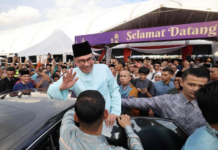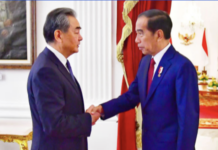Washington, Feb 8:The United States and China don’t need to have conflict, though they may face “extreme competition”, and the new administration would not handle relations with Beijing “the way Trump did”, U.S. President Joe Biden has said.
In his first network interview since taking office, Biden recalled his long-standing relationship with Chinese President Xi Jinping from when he was Barack Obama’s vice-president, saying that “there was no reason not to call him”, referring to an upcoming phone talk between them.
“I’ve said to him all along that we need not have a conflict. But there’s going to be extreme competition,” he said in an interview with CBS that aired Sunday before the Super Bowl.
“And I’m not going to do it the way that he knows. And that’s because he’s sending signals as well. I’m not going to do it the way Trump did. We’re going to focus on international rules of the road,” Biden said.
Biden’s remarks echoed his foreign policy speech during a visit to the State Department on Thursday, when he signaled a change in approach in China policy, saying, “we’re ready to work with Beijing, when it’s in America’s interest to do so”.
Secretary of State Antony Blinken had a phone call with China’s top diplomat Yang Jiechi last week.
Asked why he hasn’t yet called President Xi, Biden said, “We haven’t had occasion to talk to him yet. There’s no reason not to call him.
“I probably spent more time with Xi Jinping, I’m told, than any world leader has, because I had 24, 25 hours of private meetings with him when I was vice-president. Traveled 17,000 miles with him. I know him pretty well,” the president said.
Biden has made phone calls to leaders in countries including Russia, Japan and South Korea in the first two weeks after inauguration.
A senior Chinese diplomat in Washington last week declined to speculate when the call with the Chinese leader would happen but said the U.S. president must have China in mind when he engages with leaders from either China’s neighbors or beyond.
When he was sworn in as the 46th U.S. president on Jan 20, the Democratic president was widely expected to bring normalcy back to the White House after the four tumultuous years of Republican Donald Trump’s presidency.
It was during those four years that relations between the world’s top two economies plunged to their lowest point since they forged diplomatic relations in 1979, with trade wars fueled by Trump’s favored tariffs, and sanctions slapped on many Chinese firms and individuals, cumulating with the closure of a consulate in each country in July.
Chinese Ambassador to the U.S. Cui Tiankai said that what had happened in the relations and what the U.S. had done especially in the last few years, “has antagonized the Chinese public very much”.
“But I’m still confident if both sides could make the right choice, if we can put the relations back on a stable and constructive track, there’s a great potential and opportunity for our two countries, our two great peoples, to work together for mutual benefit and for the common benefit of the entire world,” he said in an interview with CNN that aired Sunday.
In the interview, Cui was asked to comment on the tough tone in the readout of Blinken’s phone call with Yang, and if it feels more like the Biden administration is continuing some of Trump’s hard-line policies.
“The readout still shows the example of power rather than the power of example,” Cui said. “You don’t have an effective foreign policy just by talking tough or playing tough. This is not the right way of doing diplomacy.”
The ambassador noted that there was a “clear need for good sense” of mutual respect, and people have to show good will and good faith.
Cui also said that without external involvement, it will be easier and more possible for China and its neighbors to solve the issues between them.
“The fact is, whenever you have more involvement by the United States, you have greater instability anywhere in the world,” he said, giving examples as the Middle East and some other places like Latin America.
“It’s so obvious that when you are ‘rebalancing’, or ‘pivoting’, whatever the word might be, then there’s more instability in that region,” he said.
Kevin Rudd, president of the Asia Society in New York, said a “managed strategic competition” between China and the U.S. would reduce the risk of competition escalating into open conflict.
“If it were to opt for economic decoupling and open confrontation, every country in the world would be forced to take sides, and the risk of escalation would only grow,” Rudd, former prime minister of Australia, said of Washington’s option in “Short of War”, published in Foreign Affairs’ March/April issue.



















